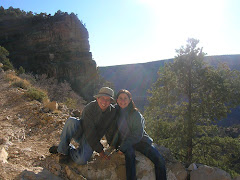Scientists Say Just Standing Up May Be as Important as Exercise
Scientists have found intriguing evidence that one major reason so many people are overweight these days may be as close as the seat of their pants. Literally. According to the researchers, most of us sit too much.
In most cases, exercise alone, according to a team of scientists at the University of Missouri, isn't enough to take off those added pounds. The problem, they say, is that all the stuff we've heard the last few years about weight control left one key factor out of the equation. When we sit, the researchers found, the enzymes that are responsible for burning fat just shut down.
This goes way beyond the common sense assumption that people who sit too much are less active and thus less able to keep their weight under control. It turns out that sitting for hours at a time, as so many of us do in these days of ubiquitous computers and electronic games and 24-hour television, attacks the body in ways that have not been well understood.
The Need to Putter
"It was hard to believe at first," said Marc Hamilton, associate professor of biomedical sciences at the University of Missouri-Columbia and leader of the research team. He said the team didn't expect to find a strong signal when they began researching what happens to fat when we remain seated. But the effect, both in laboratory animals and humans, turned out to be huge.
The solution, Hamilton said, is to stand up and "putter."
The research was published this month in the peer-reviewed journal Diabetes, and it will be presented by Hamilton's post-doctoral researcher, Theodore Zderic, at the upcoming Second International Congress on Physical Activity and Public Health in Amsterdam.
Hamilton is not suggesting that anyone quit exercising. But he says his work shows that exercise alone won't get the job done. We have to pay more attention to what's happening when we aren't in the gym, because the body's ability to dispose of fat virtually shuts down, he says, at least if we're sitting down.
Hamilton recruited a few laboratory rats and pigs, as well as about a dozen human volunteers, including himself, to learn more about the physiological effect of sitting. The lab animals laid the foundation for the research in two different experiments. The animals were injected with a small amount of fat that contained a radioactive tracer so the researchers could determine what happened to the fat.
"What's the fate of that fat?" Hamilton asked during a telephone interview. "Is it burned up by the muscle?"
The radioactive tracer revealed that when the animals were sitting down, the fat did not remain in the blood vessels that pass through the muscles, where it could be burned. Instead, it was captured by the adipose tissue, a type of connective tissue where globules of fat are stored. That tissue is found around organs such as the kidneys, so it's not really where you want to see the fat end up.
The researchers also took a close look at a fat-splitting enzyme, called lipase, that is critical to the body's ability to break down fat.
After the animals remained seated for several hours, "the enzyme was suppressed down to 10 percent of normal," Hamilton said. "It's just virtually shut off."
The results from the animal studies were very convincing, he said, and human experiments were just as compelling. The researchers injected a small needle into the muscles of the human volunteers and extracted a small sample for biopsy. Once again, the enzyme was suppressed while the humans remained seated. That resulted in retention of fat, and it also resulted in lower HDL, the "good cholesterol," and an overall reduction in the metabolic rate.
You Need to Move Those Legs
The implications, Hamilton said, are clear. While much thought has been given to the good effects of regular exercise, scientists have not paid enough attention to what happens during the rest of the time when we may be fairly active but are probably sitting too much. That could help explain the rising tide of obesity, because people tend to sit more these days than they did a half century ago. Not to mention eating too much and getting precious little exercise.
Some might argue that playing video games, or even working at the computer, involves movement of the upper body, especially the hands and arms, so that's not really inactive. But Hamilton counters that arms don't weigh very much, and the big muscles in the human body which are so critical to burning fat are located in our legs and back.
"When we think about the postural muscles that are mostly in the legs and back, these are big, powerful muscles," he said. "We're talking probably 20 pounds of muscle in each leg. That's a lot of muscle that can be engaged in routine activities," including burning fat. But they can't do that without the enzyme that is suppressed while seated.
Much is still not known, including such fundamental issues as how long the effect lasts from getting up and moving around for a while, but Hamilton expects the answers to come fairly soon.
"There is going to be a flood of research on this in the next couple of years, and not just by us," he said. "This has raised the attention of a lot of great scientists around the world who have begun doing their own studies."
In the meantime, he suggests, we do the obvious. Take the time to get up and "putter" for a while. If his research turns out to be on the mark, it could save your life.





